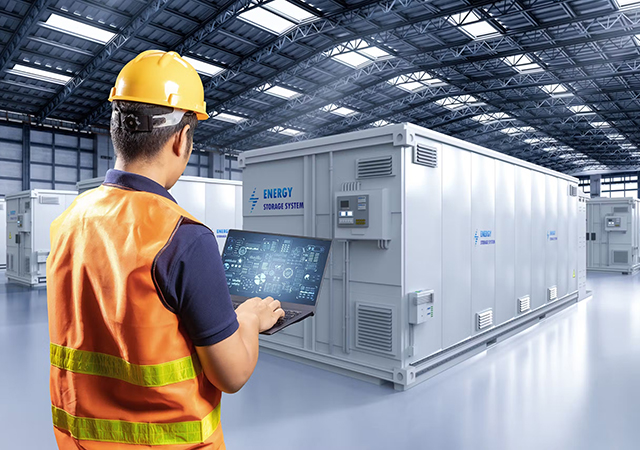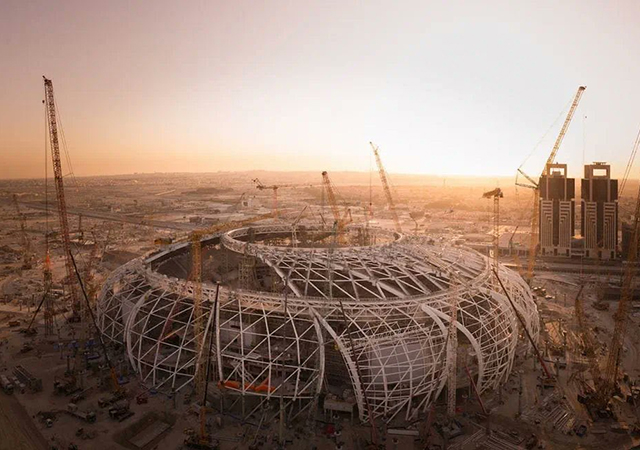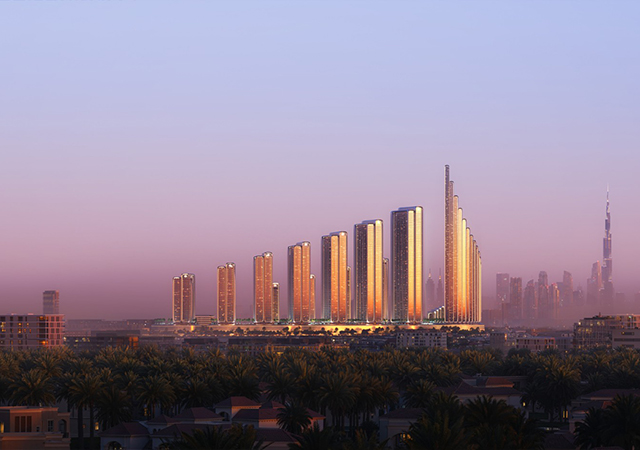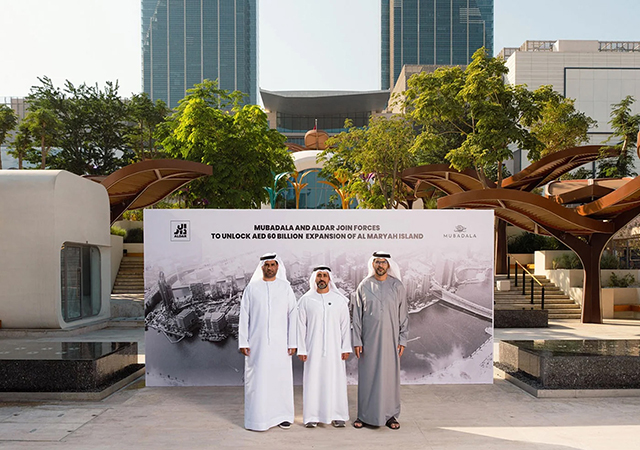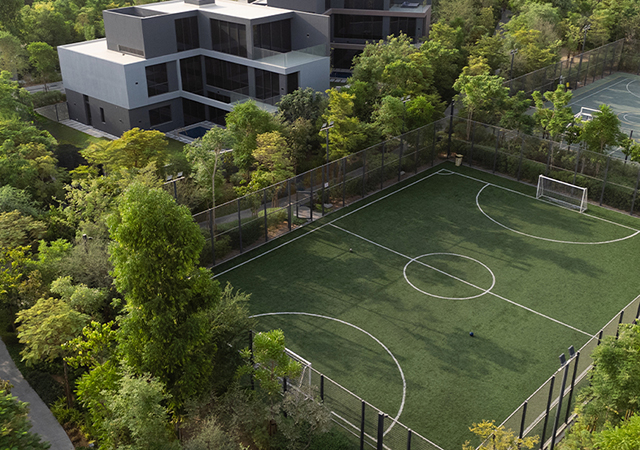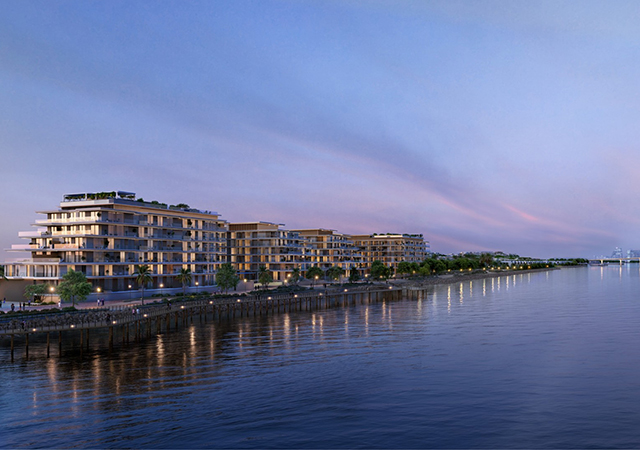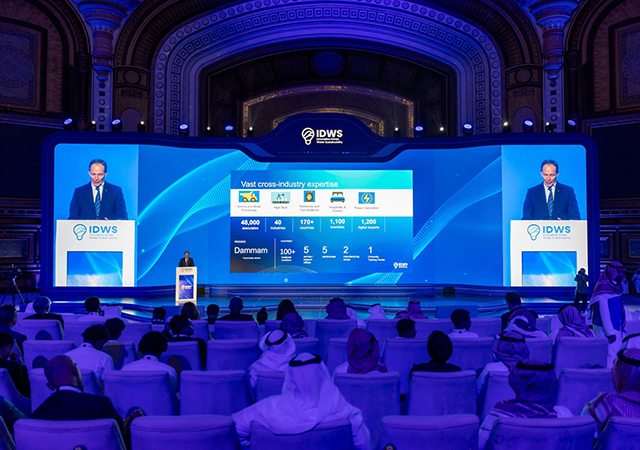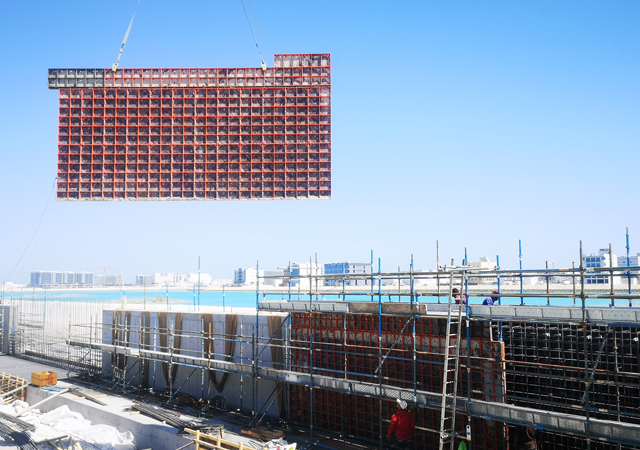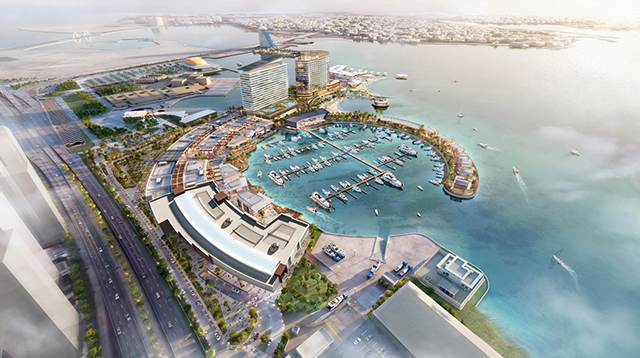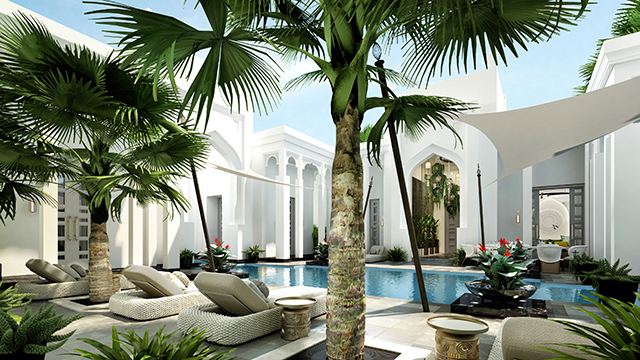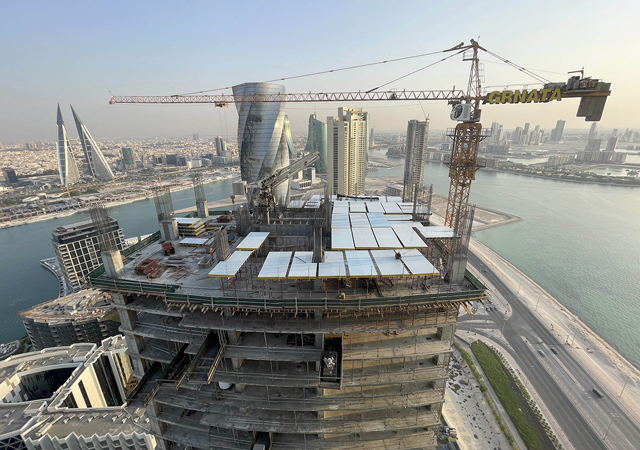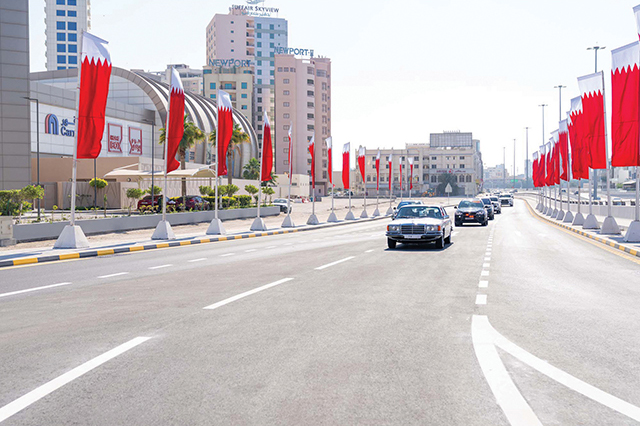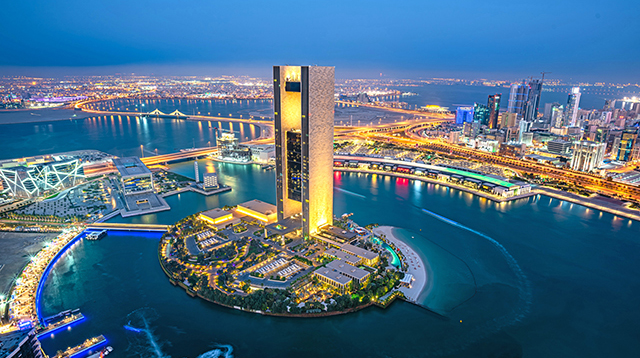

Bahrain’s construction sector is poised for growth, fuelled by the government’s infrastructure investment programme, the rebounding real estate market, and the revival of key cross-border projects.
The government’s 2021 Economic Recovery Plan, which included a $30-billion infrastructure investment programme, has been a key driver of construction activity over the past couple of years. In the coming years, projects such as the Bahrain Metro, the Busaiteen Link (fourth Manama-Muharraq Crossing) and the expansion of the King Fahad Causeway are expected to contribute significantly to the sector’s growth and prosperity.
A proposed second causeway link to Saudi Arabia and the revival of the long-awaited Bahrain-Qatar Causeway project will further bolster the sector’s outlook.
The real estate market in Bahrain has also seen a strong rebound in 2023, with rising demand for residential and commercial properties. According to the Survey and Land Registration Bureau (SLRB) real estate transactions reached a value of BD993.15 million ($2.62 billion) during 2023 up to the end of November. This is expected to continue to support the construction sector, as developers are working to meet the growing demand for new housing and commercial spaces.
In the second quarter of 2023, the construction sector accounted for 6.9 per cent of real GDP, while the contribution of real estate and business activities stood at 5.3 per cent, stated the Bahrain Economic Quarterly for Q2 of 2023, produced by the Ministry of Finance and National Economy.
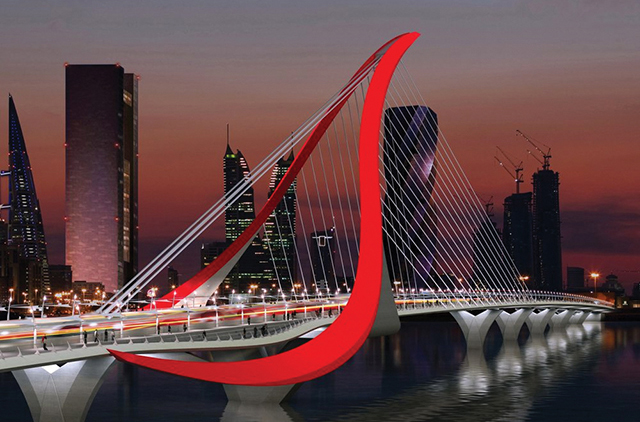 |
|
The signature bridge of the North Manama Highway project. |
GDP from construction in Bahrain increased to BD239.37 million in the second quarter of 2023 from BD237.34 million in the first quarter of 2023, according to Trading Economics.
Bahrain’s construction market size is expected to grow from $2.92 billion in 2023 to $3.58 billion by 2028, at a CAGR of 4.18 per cent during the forecast period, according to a report by Modor Intelligence.
The GCC Development Fund continues to be a key driver for growth in the construction sector, according to the Bahrain Economic Quarterly. The report added that progress on major development projects funded by the GCC Development Fund continued during Q2 2023. The total value of projects awarded under the Fund stands at $6.14 billion.
Bahrain Metro
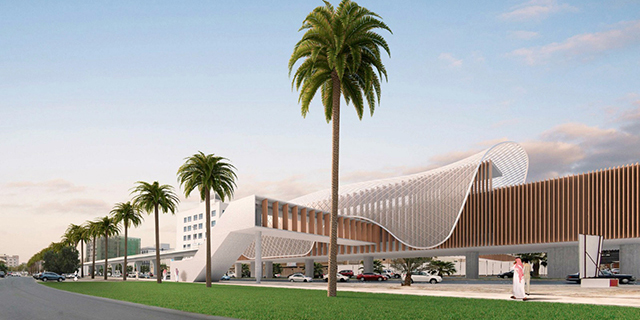 |
|
Bahrain Metro ... a key project that aims to ease the country’s traffic congestion. |
Work on the first phase of the Bahrain Metro project is expected to move forward with the selection of a developer for the ambitious development. Seven consortiums from Bahrain, China, India, Egypt, Saudi Arabia and Europe are reported to have prequalified to bid for the 35-year concession contract – five years to design, construct, fund, and 30 years to operate and maintain the metro system.
The first phase covers an estimated length of 29 km with 20 stations, including two interchanges, with two corridors – the Red Line starting from Bahrain International Airport to the Seef District and the Blue Line from Juffair to the Bahrain Metro depot in Isa Town, via Salmaniya, Farouk Junction, Manama and the Diplomatic Area.
“The project’s tender will be issued soon amongst the seven qualified consortiums and we are just awaiting final responses from other ministries and government bodies concerned so we can go ahead,” the Transportation and Telecommunications Ministry’s land transport projects chief Fadwah Zaid told Gulf Daily News, our sister publication.
The entire Bahrain Metro project, which will extend 109 km, is being implemented in four phases.
Roads & Bridges
Bahrain’s government is currently upgrading the existing road network by developing new road corridors to support the rapidly expanding economy of the kingdom. Among the key road projects under way is the Al Fateh Highway Upgrade, which marked its official opening last month. Work is ongoing on the final stages of the project.
Another major project on the anvil is the fourth Manama-Muharraq crossing also referred to as the Busaiteen Link or the North Muharraq Highway Project. In November, the Works Ministry launched tenders for the fourth package of the project that will see a fourth bridge being built between Muharraq and capital Manama and will connect north Busaiteen and Bahrain Bay (see Page 14).
Airports & Ports
Following the recent opening of the new $1.1-billion terminal at Bahrain International Airport, the Ministry of Transportation and Telecommunications has started the ball rolling on the development of a new greenfield airport project to meet the kingdom’s airport infrastructure needs as the existing site does not allow room for further expansion. The ministry has awarded the contract for the initial study on the estimated $10-billion project to Netherlands Airport Consultants (Naco).
The proposed new airport will eventually replace Bahrain International Airport (BIA) when the existing airport site can no longer effectively meet the kingdom’s airport infrastructure needs.
Muharraq Development Plan
.jpg) |
|
Marassi Galleria mall ... scheduled to open in February. |
Bahrain has also recently embarked on the Muharraq Development Plan, which not only aims to preserve the historical pearling city but also provide housing for citizens. The area under development in Muharraq spans 1.4 million sq m and will feature green spaces covering an area of 12,000 sq m, heritage buildings, alongside new and renovated housing units, as well as multi-storey car parks, standard car parks, and walkways.
The development plan is based on five pillars: preserving the historical identity of Muharraq, providing housing units that meet the requirements of Bahraini families, preserving heritage buildings, increasing and diversifying the greenery in the governorate, and developing infrastructure services and public facilities.
In October, HRH the Crown Prince Salman bin Hamad Al Khalifa gave the go-ahead for the launch of Muharraq Development Plan. The project also includes the restoration of the Isa Al Kabeer Palace.
Housing
Bahrain started the distribution of 6,800 homes on National Day (December 16) last year. The delivery of homes to citizens will continue until next month (February). The units are located in the first phase of East Sitra, Salman Town and East Hidd, which have been major focus areas for the country’s housing projects over the past few years.
To spearhead Bahrain’s housing goals, the Ministry of Housing and Urban Planning (MoHUP) has embarked upon the construction of hundreds of homes for its citizens under the Government Land Development Programme (GLDP) in partnership with the private sector. A total of 19,000 such homes are expected to be built for citizens over 10 years under the programme.
Under the current plans, 1,595 homes are to be built as part of the Madinat Khalifa Project, of which 280 housing units received the go-ahead in Q2 2023. Around 500 additional homes are set to be built in Madinat Salman.
Upon completion of the projects, the developer will pay MoHUP an agreed land value, while the ministry will provide a buy-back arrangement for units unsold after a 24-month sale period. The project company will sell these units commercially to Mazaya and social housing loan-eligible beneficiaries, it added.
Meanwhile, construction work is in progress on the East Hidd project where a further 50 apartment projects have recently been given the go-ahead under the Masaken Housing Project 2.
Power & Water
Bahrain’s overall generation capacity was boosted to 5,044 MW of electricity and 204 million gallons of desalinated water daily with the launch of the Al Dur 2 Independent Water and Power Project (IWPP) in June 2023.
Built at a total investment of $1 billion, the IWPP generates 1,500 MW of electricity and processes 50 million gallons of desalinated water daily. It is the first plant in the kingdom connected to the high-voltage electricity transmission network of 400 kV. It was established by Bahrain’s Electricity and Water Authority (EWA) in partnership with Acwa Power, a leading Saudi-based developer and operator of power generation, water desalination and green hydrogen plants worldwide, and Japanese companies.
Meanwhile, in line with the kingdom’s goal of reaching carbon neutrality by 2060, and achieving sustainable economic development, Bahrain is set to develop a 72 MW solar power project – the largest of its kind in the country – at Sakhir. The project comprises rooftop, ground-mounted and car-park solar systems and electric vehicle charging stations.
Under Bahrain’s National Renewable Energy Action Plan, the kingdom aims to achieve 250 MW of its electricity requirements from renewable energy sources by 2025. This solar power project constitutes 28 per cent of this goal.
Industry
Two of Bahrain’s largest industrial facilities have embarked upon major expansion plans, which are now well advanced.
The country’s oil refining giant Bapco has reported that steady progress is being made on its multibillion-dollar expansion project being implemented by a number of prestigious international companies, including Technip Energies (Italy), Technicas Reunidas (Spain) and Samsung (South Korea).
The ambitious Bapco Modernization Program (BMP), the largest project ever undertaken in the history of Bahrain, is aimed at increasing the refining capacity, enhancing the product list and improving energy efficiency so as to make Bahrain Refinery one of the most competitive in the region and one of the most environment-friendly.
This multibillion-dollar venture is the largest capital investment in its 90-year history, according to the Bahrain News Agency (BNA). The project reached a completion rate of around 93 per cent as of July 2023, according to the Bahrain Economic Quarterly for Q3.
Meanwhile, major developments have been under way at another industrial giant, Aluminium Bahrain (Alba) – one of the world’s largest aluminium smelters – which is considering setting up its seventh potline.
Alba has signed up Bechtel, a global leader in engineering, procurement and construction (EPC) sector, to conduct a feasibility study for its Line 7 project. Now due for completion, the study will provide a comprehensive evaluation of all factors to determine the viability of the Line 7, which is expected to have a similar production capacity as Line 6 – within the range of 540,000 tonnes per annum.
Work is currently in progress on Alba’s Power Station 5 (PS5) Block 4 Project, which is expected to be operational in Q4 2024. Block 4 will increase the nameplate capacity of the PS5 Complex from 1,800 MW to 2,481 MW and reduce its overall greenhouse gas emissions intensity ratio by 0.5 tonnes of CO2 per 1 tonne of aluminium produced.
Alba recently marked a new milestone on the project with the recent arrival of Mitsubishi Power’s M701JAC Gas Turbine (GT), which is a first-of-its-kind gas turbine in the world manufactured for a primary aluminium smelter.
Alba is also installing 11,300 solar photovoltaic (PV) panels over 37,000 sq m with a capacity of more than 6 MW. The solar farm will consist of around 11,300 panels to be fixed on the rooftop of Alba’s car parks and some of its buildings including its Spent Pot Lining Treatment (SPL) Plant. The project will generate around 10,539 MWHr per year and reduce 7,591,760 kg of carbon emissions per year – corresponding to a total reduction of 189.79 million kg of carbon emissions over a 25-year span, Alba said.
Among other key expansion projects, Bahrain Steel Company, a fully owned unit of industrial group Foulath Holding Company and a leading producer of high-grade iron pellets, has embarked upon projects worth $250 million. These include establishing a storage shed and 100 MW solar energy plant on industrial land dedicated for the company’s broad operations. The new stockyard shed, due to be completed in 2026, is expected to be the world’s largest pre-engineered building, according to the Gulf Daily News.
Real Estate
.jpg) |
|
Bilaj Al Jazayer beachfront project will feature the four-star Avani. |
The real estate and business activities sector in Bahrain witnessed a 4.9 per cent year-on-year growth in Q2 2023. This growth is driven by a strong increase in the value of real estate trading, which was up by 19 per cent compared to the same period last year, according to the Bahrain Economic Quarterly for Q2 of 2023.
This view is echoed by Knight Frank in its latest report Bahrain Real Estate Market Review – Autumn 2023, which states that the surge has been driven by the residential sector, which has seen a 5.1 per cent rise in real estate transactions during the first nine months of 2023. Additionally, there has been a marginal increase of 1.9 per cent in the total transaction value, reaching BD814 million, it said.
The sustained relocation of corporate occupants to high-quality Grade A developments has fuelled a strong demand for office space in upscale buildings over the past year, the report added.
With the real estate sector witnessing an upsurge, a number of developers have embarked on key property projects to meet the demand for commercial and residential space. Significant construction activity can be seen in the heart of the capital Manama, where cranes dot the horizon in the Bahrain Bay area, including at The Avenues-Bahrain that is in the midst of a major expansion as well as at third-party developments within the Bahrain Bay development.
Work on Phase Two of The Avenues-Bahrain – the first commercial and leisure mall of its kind in the kingdom with a unique 1.5-km-long waterfront – kicked off in September 2022 and is due for completion by Q2 2024. Leading Bahraini construction group Nass is the main contractor for the project.
Following the expansion, The Avenues-Bahrain will boost its leasable space by 41,000 sq m, which will include 244 units, two entertainment areas, an ice rink, a supermarket, as well as a basement parking, thus bringing its total leasable area to approximately 80,000 sq m.
A subsidiary of its developer leading Kuwaiti group Mabanee, meanwhile, looks set to develop a Bahrain Bay plot, having recently reached a deal to purchase a 9,554-sq-m vacant plot of land there.
Also, at the striking manmade-island development, work is nearing completion on Four Seasons Private Residences Bahrain Bay. Offering a new standard of luxury waterfront living, the development will boast a collection of 112 bespoke homes in the heart of Bahrain Bay. It is being built in co-ordination with Bahrain-based Bayside Developments.
Among other developments at Bahrain Bay, Bahrain-based developer Grnata Group has completed the structural work on the prestigious 58-storey Golden Gate Towers project and Arcal is set to start on the façade work. The project boasts one of the largest residential buildings in Bahrain (see Page 16).
Elsewhere on Manama’s eastern coastal strip, the ground has been broken on the BD200-million Bahrain Marina project (see Page 23); while on the northern coast, Infracorp has announced the launch of Marina Bay, a luxurious residential development at Reef Island, which involves an investment of $200 million. Infracorp has also entered into a partnership with Kempinski Hotels to manage a landmark hotel and residences at one of the three signature towers at Bahrain Harbour, an urban community in the heart of the capital.
Meanwhile, work continues on another landmark beachfront development on Bahrain’s southwestern coast at Bilaj Al Jazayer, which is being spearheaded by Bahrain Real Estate Investment Company (Edamah), the real estate arm of Mumtalakat, the kingdom’s sovereign wealth fund.
Work is under way on two boutique hotels – the four-star Avani and the five-star Tivoli – within the 1.3-million-sq-m mixed-use sustainable city, which focuses on a holistic beachfront lifestyle. Bilaj Al Jazayer comprises resorts, residential villas and apartments, food and beverage outlets, offices, retail and entertainment establishments, and a 3-km-long beachfront.
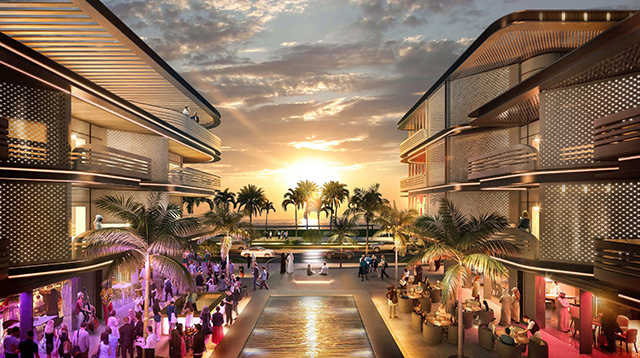 |
|
Bilaj Al Jazayer beachfront project will feature the five-star Tivoli. |
The boutique hotels are being built under a partnership deal between Edamah and Thai multi-national hospitality group Minor. Both hotels are scheduled to open in 2025.
The project will capitalise on the developments in the Sakhir area, where a new sports city is expected to be built near Bahrain’ state-of-the-art exhibition centre Exhibition World Bahrain. According to the Ministry of Works, the consultant has completed the detailed drawings and is currently working on the tender requirements for the project, which will take three years to complete.
Another project that aims to capitalise on the major developments in this region is Areen, which has just opened a new Raffles hotel and unveiled a masterplan for a new township (see Page 22).
Meanwhile, off the coast of Muharraq, Bahrain’s largest integrated residential city Diyar Al Muharraq continues to grow and evolve. Here, third-party developer Eagle Hills Diyar (EHD) – which is spearheading the iconic Marassi Al Bahrain project – has recently flagged off the construction of two residential towers – Marassi Bay and Marassi Terraces – with the award of a contract to leading Bahraini construction firm Kooheji Contractors.
Marassi Bay will feature 196 bespoke apartments set over 10 storeys, featuring elegant indoor and outdoor facilities such as a temperature-controlled infinity pool, a gym, a barbecue area and manicured gardens. Marassi Terraces comprises two 10-storey towers featuring shops, cafes, and restaurants on the ground floor, a podium with amenities.
The contract award comes on the heels of the completion of Marassi Park, comprising 249 luxury residential units. Marassi Park was the fifth major project to have been delivered as part of Marassi Al Bahrain’s framework.
Eagle Hills Diyar is now poised to open its Marassi Galleria – a 200,000-sq-m shopping and leisure hub which offers a range of entertainment facilities – next month (February). The beachfront luxury shopping destination spreads over three levels to occupy a total gross leasable area of 114,000 sq m and boast over 450 stores including some of the world’s most prestigious brands.
The mall is connected to two five-star hotels – the Vida Beach Resort and the Address Beach Resort – as well as luxury serviced apartments, which were completed earlier.
The master-developer of Diyar Al Muharraq, meanwhile, has started construction on the third and final phase of Al Naseem villas project, a luxurious residential community located in the Southern Island of the development. Spread over a 328,000-sq-m area, Al Naseem consists of six types of villas available on a freehold basis for all nationalities in both gated and non-gated communities.
Phase Three of the project includes 115 three- and four-bedroom residential villas overlooking the inner and outer water canals.
The second phase of the Al Naseem community, which comprises 114 three- and four-bedroom villas, was scheduled to be completed by the end of last year. Phase One consisted of 73 villas.
Diyar Al Muharraq has also launched Al Wasem comprising 130 luxurious seafront and inner residential plots, located on the northern island within the premium integrated city.
Over the year, Diyar Al Muharraq has also seen the opening of the 3.5-km-long water canals within its Al Naseem community and the landscaping project at the entrance to the integrated residential city.
At the adjacent development, Dilmunia Island meanwhile, the developer Bahrain-based Ithmaar Development Company (IDC) has completed work on the Nadeen School. The new state-of-the-art educational facility has been developed by IDC in a joint venture with Bahraini developer Naseej.
Naseej is currently spearheading the development of three other new real estate developments – at Arad, Barbar and Amwaj Islands. These include Nasayim Arad development on the edge of Arad Bay; the Barbar development which is located on Barbar-Budaiya Road; and Investment Lands Project, a mixed-use development at Amwaj Islands.
Outlook
The Bahrain construction sector is well-positioned for continued growth in the coming years. The pipeline of major infrastructure projects, the strong real estate market, and the government’s commitment to economic diversification are all positive factors. However, the sector will need to manage the challenges of rising costs and labour shortages to maintain its momentum.








.jpg)

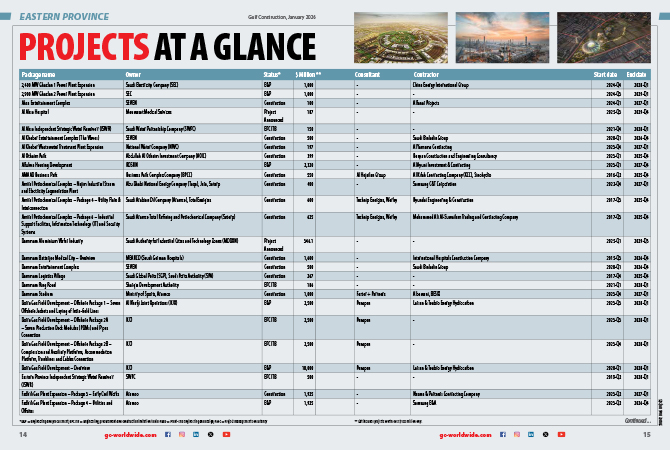


.jpg)





















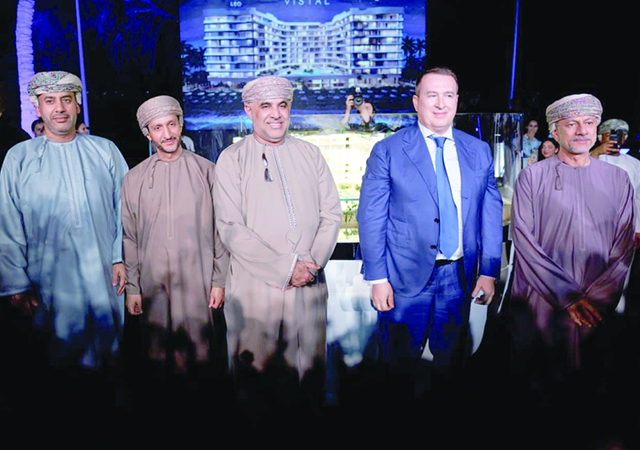






.jpg)







